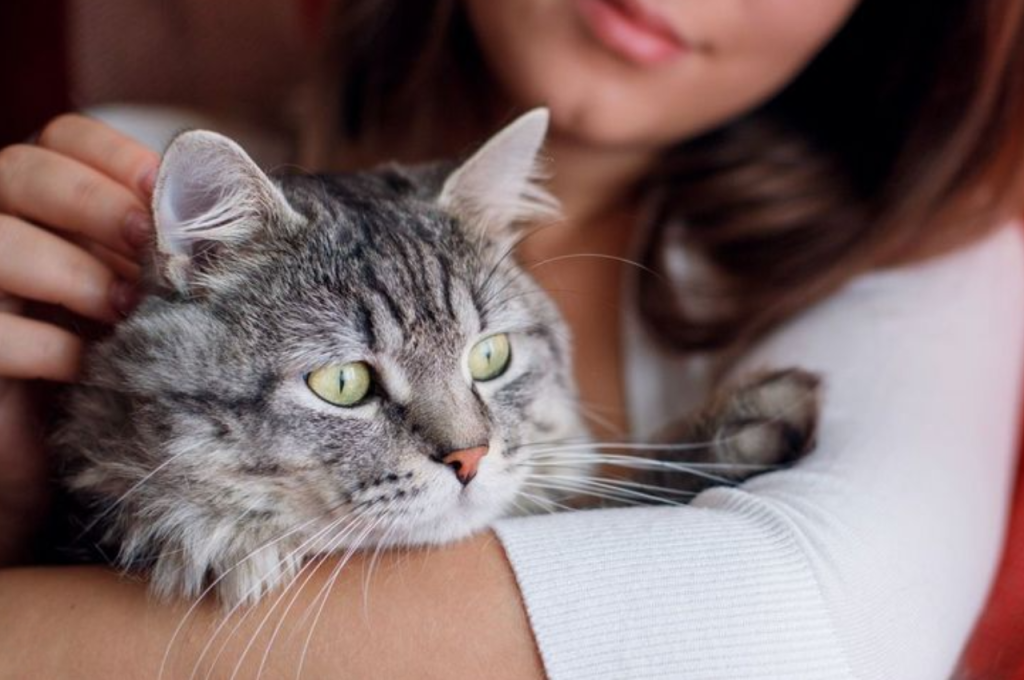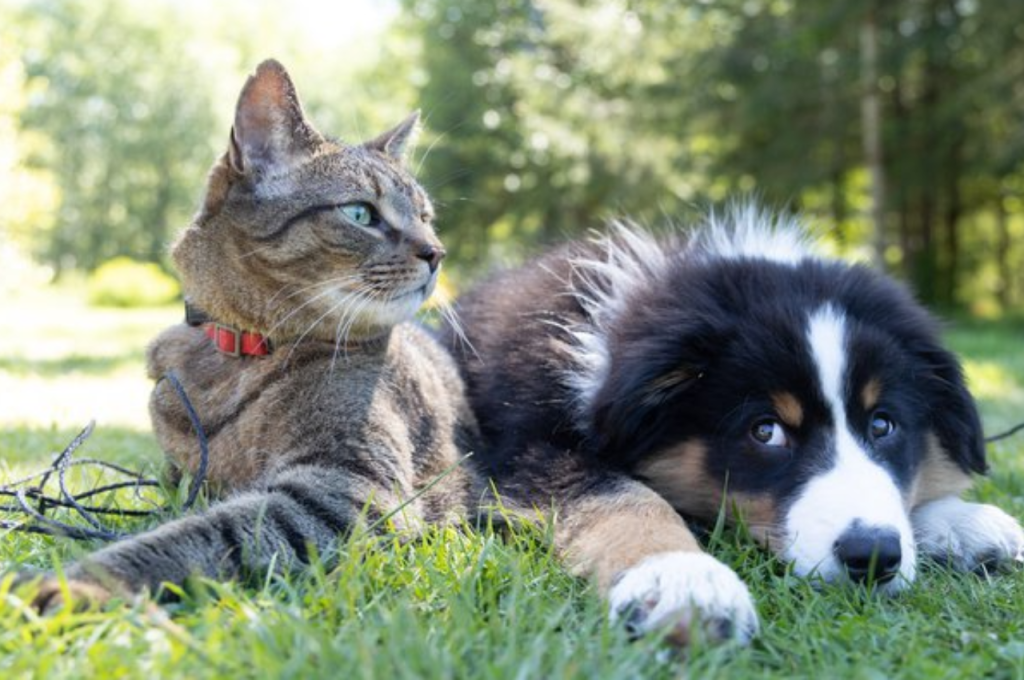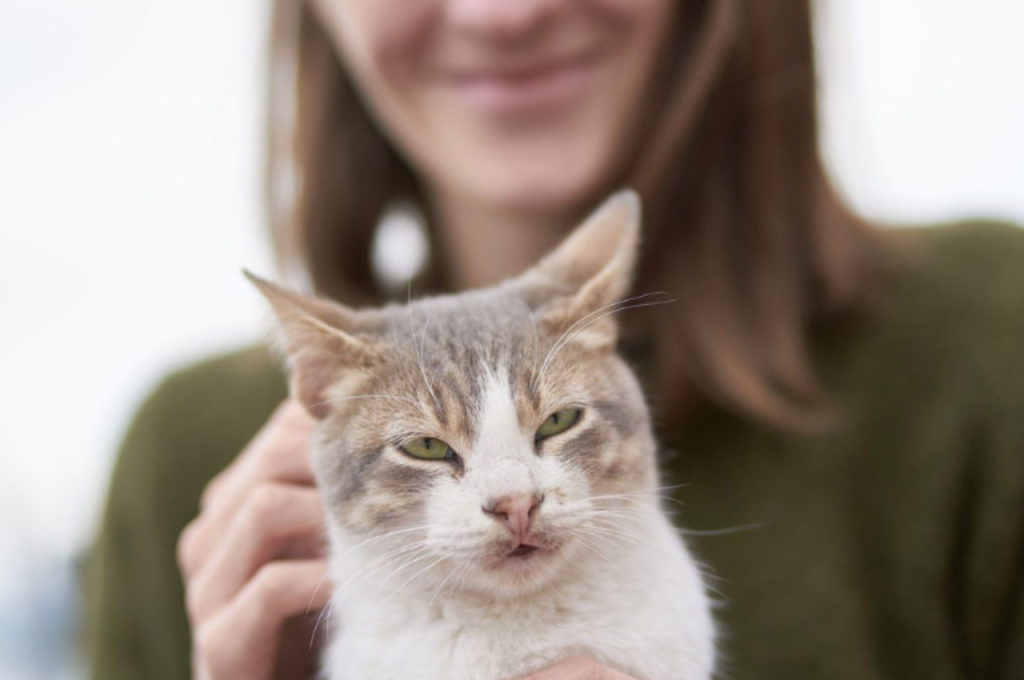Cats are generally considered to be independent and less loyal compared to dogs. However, their loyalty can vary from cat to cat.
Some cats may be more loyal to their owners while others may be more aloof and independent. Nevertheless, cats can still form strong bonds with their owners, show affection, and display signs of loyalty such as purring, following their owners around, or curling up next to them.
Understanding a cat’s personality, providing them with love, care, and attention, and creating a safe and comfortable environment can help strengthen the bond and loyalty between a cat and its owner.
The Nature of Feline Loyalty
Cats are known for their mysterious and independent nature, but have you ever wondered about their loyalty? Let’s delve into the dynamics of cat loyalty and explore what influences it.

Definition of Loyalty in Cats
Cat loyalty can be defined as the bond and attachment that a cat forms with their owner or their territory. It is the cat’s sense of dedication and faithfulness towards those they trust.
Factors Influencing Cat Loyalty
- Positive Reinforcement: Cats respond well to love, care, and attention from their owners.
- Consistency: Maintaining a routine and providing a stable environment can strengthen the bond with a cat.
- Territoriality: Cats are loyal to their territory and feel secure in familiar surroundings.
- Genetics: Some cat breeds are known to be more loyal and affectionate than others due to their genetic predisposition.
Signs of Cat Loyalty
Have you ever wondered if your feline friend is loyal to you? Cats may have a reputation for being independent creatures, but they are also capable of forming strong bonds with their human companions. In this blog post, we will explore some common signs of cat loyalty that you may observe in your furry companion.
Physical Affection
Cats may not wag their tails or jump excitedly like dogs, but they have subtle ways of showing their affection. One of the most obvious signs of loyalty is when your cat showers you with physical affection. This can include rubbing their head against you, purring contentedly, or kneading their paws on your lap. These gestures are not only signs of love but also indicate that your cat trusts you and feels secure in your presence.
Protective Behavior
While cats may not be as protective as guard dogs, they still possess an instinct to keep their loved ones safe. If your cat shows protective behavior towards you, it is a clear indicator of their loyalty. They may react defensively if they sense a threat or danger nearby, puffing up their fur, hissing, or swatting. This displays their willingness to defend you and their strong attachment to you as their trusted human.
| Protective Behavior | Description |
| Hissing | A sign that your cat is feeling threatened and attempting to scare away potential danger. |
| Puffed-up Fur | When a cat feels threatened, they may puff up their fur to appear larger and more intimidating. |
| Swatting | If a cat feels cornered or provoked, they may swat with their claws out as a warning or to defend themselves. |
These protective behaviors demonstrate that your cat considers you an important part of their “family” and is willing to go to great lengths to ensure your safety.
The Evolutionary Perspective
Cats have been domesticated for thousands of years, and understanding their loyalty from an evolutionary perspective can shed light on their behavior. Historical relationships with humans and their survival adaptations are key factors in understanding the loyalty of cats.
Historical Relationship With Humans
Since ancient times, cats have been revered and valued for their ability to control pests such as rodents. This mutually beneficial relationship with humans has influenced the loyalty of cats, as they learned to coexist and thrive in human environments.
Survival Adaptations
Through evolution, cats have developed survival adaptations that have contributed to their loyalty. Their keen senses, agility, and self-sufficiency have allowed them to form strong bonds with humans while still maintaining their independence.
Measuring Cat Loyalty
Cats, with their mysterious and independent nature, often leave us wondering about the depth of their loyalty. While dogs are known for their unwavering devotion, cats’ loyalty can be more subtle and complex.
Behavioral Studies
Behavioral studies play a crucial role in understanding the loyalty of cats. Observable behaviors such as purring, rubbing against their owners, and following them around can indicate a strong bond. Furthermore, tracking a cat’s response to their owner’s absence can provide insights into their loyalty levels. These studies aid in quantifying and comprehending the emotional connection that drives cat loyalty.
Bonding Techniques
Utilizing bonding techniques is imperative in measuring cat loyalty. Engaging in positive reinforcement through playtime, grooming, and providing a safe environment can foster a strong bond with the feline. Additionally, understanding and respecting a cat’s personal space while also demonstrating affection and care can further solidify the loyalty between a cat and its owner. These techniques allow for a deeper understanding of the strong bonds between cats and their human companions.
Cat vs. Dog Loyalty
Cats and dogs, the age-old debate of loyalty. When it comes to loyalty, how do our feline pals measure up against our canine companions?

Comparative Loyalty Traits
Cats: Cats are known for their independent nature and are often perceived as less overtly loyal compared to dogs. They form strong bonds with their owners but may not display it as visibly.
Dogs: In contrast, dogs are often praised for their undying loyalty and unconditional love towards their humans. They are known to be more demonstrative in showing affection and loyalty.
Impact of Socialization
Cats: Socialization plays a crucial role in a cat’s loyalty towards their owners. Cats that are well-socialized from a young age tend to be more loyal and affectionate.
Dogs: Dogs are highly social animals, and their loyalty is often influenced by how they are raised and socialized. Proper training and positive interactions can strengthen the bond between a dog and its owner.
Building Trust With Cats
Understanding how to build trust with your feline friend is essential in nurturing a strong and loyal bond. Cats are independent creatures that value consistency and respect in their care.
Consistency in Care
Consistency in feeding schedules and attention helps establish a routine that cats rely on for comfort. This routine fosters a sense of security and stability, enhancing your cat’s overall well-being.
Respect for Independence
Respecting a cat’s need for space and allowing them to come to you on their terms is crucial in building trust. By demonstrating patience and understanding, you create a supportive environment where your cat feels safe and valued, ultimately strengthening your bond with them over time.
Challenges in Assessing Cat Loyalty
Cats are known for their independence, and assessing their loyalty can be challenging. While dogs often exhibit overt displays of loyalty, cat loyalty may be more subtly expressed. Understanding the challenges in evaluating cat loyalty can shed light on the complex nature of feline relationships with their owners.
Misinterpreted Behaviors
The behavior of cats is often misinterpreted when it comes to assessing loyalty. Cats may not display affection in the same way as dogs, leading to misconceptions about their loyalty. For example, a cat may not greet its owner at the door, but this does not necessarily indicate disloyalty. Understanding the unique ways that cats express allegiance is essential in evaluating their loyalty.
Cat Breed Variations
Cat breeds can exhibit varying degrees of loyalty. Some breeds may have a more independent nature, while others are known for their loyal and affectionate behavior. For instance, Siamese cats are often described as loyal and vocal, while Persian cats may be more reserved. Recognizing the influence of breed variations is crucial in understanding and assessing the loyalty of individual cats.
Enhancing Cat-human Bond
Cats are known for their independent nature, but they are also capable of forming deep and lasting bonds with their human companions. By understanding and actively participating in activities that strengthen the cat-human bond, you can create a loving and loyal relationship with your feline friend. In this article, we will explore three key ways to enhance the bond between you and your cat: through interactive play, positive reinforcement, and effective communication.
Interactive Play
Interactive play is an essential part of your cat’s physical and mental well-being, as well as a great way to strengthen your bond. Engage in play sessions regularly, using toys that mimic natural prey, such as feather wands or small plush mice. Vary the toys and play styles to keep your feline friend interested and excited. This not only allows them to indulge their hunting instincts but also reinforces the connection between you and your cat as you play together.
Positive Reinforcement
Positive reinforcement is an effective way to encourage desirable behaviors and strengthen the bond with your cat. When your cat displays behavior you want to see more of, such as using the litter box or scratching on a scratching post, reward them with praise, treats, or gentle petting. By associating these actions with positive experiences, your cat will be motivated to continue behaving in a way that pleases you. This not only strengthens your bond but also makes training more enjoyable for both of you.
Effective Communication
Clear and effective communication is fundamental in any relationship, including the one you have with your cat. Cats use body language and vocalizations to convey their needs and emotions, and it’s essential to learn to interpret them. Observe your cat’s tail position, ear posture, and vocalizations to understand their mood. Provide them with a safe and comfortable environment, and respond appropriately to their cues. By acknowledging and respecting their communication, you demonstrate your commitment to the bond and foster trust and loyalty.

Conclusion
Cats, known for their independent nature, may not have a reputation for loyalty like dogs do. However, our understanding of loyalty should not be limited to outward displays of affection. Cats have their unique ways of showing loyalty, such as staying close during times of illness or seeking comfort from their owners.
It is important to acknowledge and appreciate the loyalty of cats, even if it manifests in different ways. So, while cats may not fit the conventional definition of loyalty, their unwavering presence and subtle gestures speak volumes about their attachment to their human companions.
